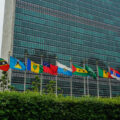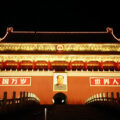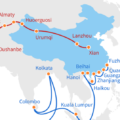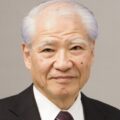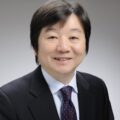The post-Cold War ordeals: Changing Asian international order and Japanese diplomacy

“In October 1989, the Berlin Wall fell, and the long-lived bipolar order under the Cold War ended. […] The historical moment of the end of the Cold War did not signify the arrival of the eternal city where liberal democracy and market economy reign.”
The post-Cold War euphoria of the triumph of liberal democracy did not persist. In an era of resurgent struggles over “geography and history” and the rise of China as a new destabilizing factor, what has been the thinking of Japanese diplomacy and how has it been behaving?
Iokibe Makoto, Chancellor of University of Hyogo
Globalization and regional identity
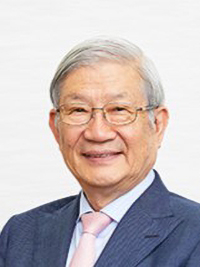
Iokibe Makoto, Chancellor of University of Hyogo
In October 1989, the Berlin Wall fell, the Communist regime of the Soviet Union and Eastern Europe collapsed in an avalanche-like fashion, and the long-lived bipolar order under the Cold War ended.
The antagonism between two camps headed by two nuclear powers ended and people expressed naïve expectations of the creation of one peaceful world. Francis Fukuyama wrote The End of History and the Last Man, trying to depict the ultimate victory of liberal democracy and market economy as history unfolding. However, suffering and wavering will not disappear from the history of this world. Every accomplishment will give birth to the next internal inconsistency as resistance and movements seeking to quell it are repeated. The historical moment of the end of the Cold War did not signify the arrival of the eternal city where liberal democracy and market economy reign.
Two challenges were quick to make themselves known.
One was Saddam Hussein and Iraq’s invasion of Kuwait. Saddam did not conceal his ambition for regional hegemony, for example as he also started the Iran-Iraq War. The end of the Cold War suddenly came to the world, and perhaps Saddam saw it as a golden opportunity when people’s eyes were fixated on the grand drama that was the unification of East and West Germany in continental Europe, because in August 1990, he invaded and occupied overnight Kuwait, a country rich in oil but poorly defended.
US President George H. W. Bush secured the agreement of British Prime Minister Margaret Thatcher and other relevant parties to get a UN resolution and set up a multinational force. Starting with the Gulf War in January 1991, they defeated the Iraqi military and liberated Kuwait. People were speaking of a post-Cold War “New World Order.”
Saddam’s reckless actions had been stopped, but it was doubtful if a new order had been established. Huge multiethnic states like the former Soviet Union and former Yugoslavia were falling apart, ethnic conflicts were becoming frequent, and regional conflicts saw no end in the Middle East and Africa. Conflicts within the regions rooted in aspects of historical identity such as ethnicity and religion, long suppressed under the bipolar order during the Cold War, were freed with the end of the Cold War. In a word, there was a massive “revival of geography and history.”
Another ominous event that took place after the end of the Cold War era was the Tiananmen Square protests in China in 1989. Internationally, expectations were that a society sustaining economic development would shift to a democratic system sooner or later, as indeed Taiwan and South Korea had. China had achieved high economic growth for a decade since the 1980s with Deng Xiaoping’s “Reform and Opening-up.” As a result, many Chinese escaped starvation, a middle class emerged to a certain degree, and there was an increase in support for democracy as well. Faced with the Tiananmen Square protests in June 1989, which may be termed an explosion, Deng firmly swung the hammer and suppressed the protesters by sending in tanks.
Deng thought that if the Chinese government accepted the waves of democratization reform, it would lead to a collapse of the Chinese national system. “In fact, when the Hungarian leaders made concessions, the public pressed for more demands. If China’s leadership succumbs here, that shall be the end of China” (Ezra F. Vogel Deng Xiaoping and the Transformation of China, 2011). As a surviving member of the revolutionary generation, Deng sought to defend the national polity called the communist system from the US strategy of “Fall of China through Peaceful Evolution.”
Shocked by the brutal military repression of the democratic movements, the United States, Europe, and other developed countries imposed sanctions on China. The intention was not to kill off the Chinese economy, but merely to express protest and the sanctions ended a year later at the Houston Summit.
Why? To answer negatively, it was because they didn’t want gigantic potential empire “China” to run freely as a beast in the wild. The West had the same worries about post-Soviet Russia, and so they added Boris Yeltsin’s Russia to the summit of developed countries in 1997 as a way to better train the big beast. That is, there existed two supermassive black holes in the form of post-Cold War Russia and China, with the question of how to handle being a difficult theme.
To answer positively, the developed countries wanted both China and Russia to get used to and steadily develop market economies, creating a foundation upon which to move toward democratization. In other words, both Japan and the United States had a deep-seated engagement theory of wanting to incorporate China into the global market economy and turn it into a democratic friend, despite the shock of the Tiananmen Square protests. In 1992, Deng Xiaoping in his later years once again advocated economic development in the interests of a market economy during his southern tour, vividly pointing the direction of “socialism and market economy.” With this, China resumed its high economic growth, but politically it firmly retained the stance of adhering to the communist system as China’s own socialism.
There is the proverb “Rome was not built in a day,” which applies to both market economy and democracy. After the Cold War, the Russians struggled on both accounts. Moscow had glitzy department stores opening and seemed to have introduced a Western economy, but the industrial revolution made little progress and it remained an economy dependent on resources such as oil and gas. Democratization oscillated between hope and frustration during the Yeltsin era, but since 2003, it has been clear that Putin’s Russia is strongly opposed to the eastward expansion of the North Atlantic Treaty Organization (NATO) and is making a return to authoritarianism.
While the Russians failed in terms of both market economy and democracy, China had great success in developing its own market economy. In the 30 years leading up to 2010, China maintained high growth of 10% per year, surpassing Japan to become the world’s second economic power. China has been able to develop by absorbing nutrients from the global market economy to the fullest, while at the same time striving to keep its uniqueness by adhering to the communist system as a Chinese-style national polity without submitting to modern Western liberal democracy.
In any case, the Cold War was won by the Western Bloc, which meant the disappearance of any international system to rival the market economy and democracy for some time. The West’s long-cultivated system nearly covered the planet as the only one around. The existence of the United Nations system, established as a consequence of World War II, was demonstrated through the victory of the United States and its allies in the Gulf War. The Bretton Woods System on the economic front underwent a major upset after the 1970s, following the damage dealt to the United States during the Vietnam War. Still, the General Agreement on Tariffs and Trade (GATT), one of the pillars of free trade, was expanded and strengthened in 1995 as the World Trade Organization (WTO). After the Cold War, international organizations working in various economic and social fields, which were created in the post-WWII era, also survived.
Now, one remarkable change after the Cold War was the IT revolution. Information and communications technology, originally developed for US military use, was diverted to the civilian sector, revolutionizing business operations and facilitating immediate global communications across vast distances and borders. IT globalization reached every corner of the planet in the 1990s, and the United States, which led this development, regained its economic advantage, while Japan and other countries lagged behind and lost competitiveness due to a “digital divide.” Despite problems of inequality, IT globalization brought about the revitalization and expansion of international economic activities.
In other words, to summarize the post-Cold War world, there was a raging flow of globalization on the one hand, and numerous regional conflicts due to the revival of identity politics based on geography on the other. Polarization was what characterized the post-Cold War world.
There is something worth to remember about this. A “symposium commemorating the 1,200th anniversary of the transfer of the national capital to Kyoto” was held at the famous Kyoto temple Chion-in in 1994. I was one of the panelists. The moderator Professor Tsutsui Kiyotada explained that Marxism, as a dogma comprehensively explaining the world and history, came to have a tremendous impact on the intellectual world through the post-WWII Cold War period. He raised the question of what kind of values were dominant in the post-Cold War period and turned to Kyoto University professor Noda Nobuo who was sitting next to me. Professor Noda immediately responded with three words: “ethnicity, religion, and Asia.” That was a brilliant and revelatory response. He was already predicting that ethnic conflicts and religious conflicts would be occurring all over the world as well as the rise of Asia.
Subsequently, the moderator turned to me. I replied with another three words: “international, human rights, and environment.” This was because even if the revival of geography and history was an important new event, the post-WWII order was alive and well, so that there was no way to deny the continued significance of the value principles of the West as the victor of the Cold War. Compared to Professor Noda’s three words, my answer was mediocre. While I am ashamed of that, that was an answer I gave while pondering through what future young generations would identify themselves.
Entering the 21st century: Islamic extremists and China
One of the most influential explanations of the post-Cold War world has been Professor Samuel Huntington’s The Clash of Civilizations and the Remaking of World Order. The Post-Cold War world is one of the eight civilizations of the world listed by Professor Huntington. This was a text that foretold that the Confucian–Islamic connection would become a challenge to the US-centric Western civilization. In the same book, he identified Japan not as part of the Western civilization nor of the Confucian civilization, but as a civilization of its own.
Just recalling 9/11 in 2001 is enough to clearly see the challenge posed by the Islamic civilization, and if you look at the rise of China without the loss of its uniqueness, it is evident that the Chinese civilization is the greatest challenger to the United States. However, it has to be said that Professor Huntington completely missed the mark when he claimed that the two civilizations would collude and form a single challenge. Islam and China stood up to the US-centric West in contrasting ways, quite separately.
Governments like the Taliban regime in Afghanistan that support groups carrying out suicide bombings at the heart of the United States are rare in the Islamic world. So we should not think of the Islamic countries as challenging Western civilization as a whole. However, here we have to focus on the activities of the extremists that changed history.
How did the 9/11 terrorist attacks change history?
Firstly, US President George W. Bush and his administration launched the war on terror. They started fighting in Afghanistan, which was harboring al Qaeda, the perpetrators of the 9/11 attacks, calling on the world to participate in the war on terror. China and Russia, with Muslims within their own borders, cooperated in the US fight against terrorism because they needed to suppress domestic terrorism and separatist movements.
During this period, the United States struggled with North Korea, which was causing a crisis by developing nuclear weapons and missiles, but China also served as a facilitator of the six-party talks. Far from being an adversary to the United States, China became a collaborator in the fight against terrorism and a junior partner of the US with regard to North Korea’s nuclear issue. China joined the WTO in 2001, and the policy of engagement with China was mainstream in the United States until the time of the Obama administration. China during this period wisely concealed its claws and acted as a partner with the United States.
What turned things around was the Iraq War in 2003. The Bush administration was prodded into action by the Neocons (neoconservatives), who believe that the United States should exercise its superior military power to advance global democratization. The casus belli of the war was that Iraq, led by Saddam Hussein, manufactured and possessed weapons of mass destruction. However, even after conquering the whole country, no such weapons were found. This injured popular confidence in the US government and the leadership, which eventually led to the veteran candidate Hillary Clinton losing to presidential candidate Trump in the 2016 Presidential election.
The United States did not get a UN resolution for the Iraq War due to opposition from France, Germany, and Russia. As a result of forcing action, a major rift arose in the US-Europe relationship. It was the first time in history that the United States and Europe, united through NATO, were so seriously at odds. The leadership of British Prime Minister Tony Blair, who had joined President Bush’s war, was also shaken.
During this fight against terrorism, Japanese diplomacy was the responsibility of the Koizumi Junichiro cabinet. The Japanese government had learned from the international criticism stemming from its reluctance to join the Gulf War. The prime minister declared that “Japan is with America” shortly after 9/11, and when the Bush administration commenced fighting in the war against Afghanistan began, Japan did not directly participate but earned international praise by enacting the “Anti-Terrorism Special Measures Law” and launching its own logistic support operations to have the Maritime Self-Defense Force (MSDF) offer refueling in the Indian Ocean. Moreover, Prime Minister Koizumi also expressed “support” for the Bush administration’s Iraq War by enacting the “Special Measures Law on Iraq” and dispatching the Japan Ground Self-Defense Force (JGSDF) to provide humanitarian and reconstruction assistance as well as the Japan Air Self-Defense Force (JASDF) to provide logistics assistance with a focus on transportation. Through this, the Koizumi administration significantly strengthened the Japan-US Alliance.
Prime Minister Koizumi succeeded in deepening US-Japan relations, but for domestic reasons he visited the Yasukuni Shrine every year, thus causing a deterioration in relations with China and South Korea, so much so that summit meetings could not be held. During the era of the Hashimoto Ryutaro and Obuchi Keizo cabinets, Japan was the cornerstone of international relations in the Asia Pacific, but under the Koizumi government, it felt that it had relinquished that position to China as a facilitator of the six-party talks. On the other hand, Prime Minister Koizumi visited North Korea and produced the Japan-DPRK Pyongyang Declaration, successfully bringing home some of the abductees. He was an unusual example of a Japanese prime minister capable of risk-taking diplomacy.
Although there were issues, the United States and the rest of the world was enjoying an economic boom accelerated by IT globalization. However, the Lehman crisis of 2008 shook the world so greatly. In particular, it was significant that it became a turning point that made China a challenger to the United States.
To the era of US‒China confrontation
In addition to the successful Olympics at Beijing 2008 in the same year, the Hu Jintao administration came to prop up the world economy by launching a huge fiscal stimulus of 5 trillion yuan during the Lehman crisis, thereby boosting China’s international presence and increasing the confidence of Chinese nationalists. In the following year of 2009, there were growing calls to leave behind Deng Xiaoping’s instructions “To keep a low profile,” and anti-Japanese riots took place in China following two incidents involving the Senkaku Islands in 2010 and 2012. The Xi Jinping administration from 2012 regularly dispatched government vessels to Japanese territorial waters around the Senkaku to promote China’s territorial rights. In the South China Sea, China moved to reclaim land and militarize islands taken from the Philippines and Vietnam at the Spratly Islands starting in 2014, and repeatedly took action to expand Chinese control. In the United States, the Obama administration, which had been maintaining engagement with China, finally ordered the Pentagon (US Department of Defense) to conduct Freedom of Navigation Operation (FONOP) exercises in the fall of 2015, with the Destroyer Lassen entering the waters of the Spratly Islands.
The Xi Jinping administration speaks of the “Chinese Dream” and aims to become as powerful as the United States by the mid-21st century through large-scale military expansion and advanced technological breakthroughs on the basis of its economic power, second in the world. Against this backdrop of a growing military power, it is attempting to accomplish maritime expansion and strengthen control of Uighur Xinjiang and Hong Kong. These are outspoken acts against the United States, which values freedom and human rights, so that the US-China relationship truly resembles a clash of civilizations. Thus, the rivalry between the two orders is deepening in East Asia.
In 2016, three major events occurred in the world, marking a turning point in modern history.
The first was the decline of the Islamic State. I won’t go into the background of the situation, but the Islamic State, which went beyond simply being a suicide bomber organization of Islamic extremists to impose control over areas from Iraq to Syria, had to retreat in the face of air strikes by the United States and Europe and a ground invasion by neighboring countries, precisely because it held territory.
The second was Europe being shaken. The “Arab Spring,” anti-government movements in the Middle East and Africa since 2010, was expected to be a new wave of democratization. However, even if it could topple the old regimes, it lacked the capacity to build democratic systems, and on the contrary, we saw a return to internal conflict and civil war, or autocratic rule. As a result, a flood of refugees came over Europe, destabilizing European society and politics. Anti-immigration populism has grown in many countries, and a UK referendum ended in a decision in favor of Brexit. We have seen a progression of division not only between the United States and Europe but also within Western Europe, thus making the politics of developed countries unstable.
The third was Donald Trump’s victory in the US Presidential elections. President Trump won ardent support with his rough and often error-studded but powerful speech. This has exacerbated national divisions. Diplomatically, he preferred bilateral negotiations that advocated America first and dealt shocking blows to other countries at first while securing a certain amount of profit in the end. If we are to confront China, we should cooperate with other countries, but Trump also antagonized the Russians and deepened the rift with European countries. Not attempting to hide his anti-internationalism, he had no friends in the world except for Japanese Prime Minister Abe Shinzo, and he had almost no subordinate diplomatic staff.
While the outbursts of Islamic extremists have subsided, the Chinese despotic government with its huge population and economic and military power remains an increasingly strong challenger.
We are about to see a world in which the two superpowers of the United States and China confront each other. However, while the two superpowers of the United States and the Soviet Union in the Cold War era each led their own separate worlds, China has grown by benefitting from the market economies, so it is difficult to detach it from the international economy. China is an important trading partner not only for China’s neighbors but also the United States and Europe. On the other hand, a rivalry that is difficult to reconcile is deepening, especially in the area of security. Southeast Asian countries, for example, are caught between the two superpowers, choosing one of three positions: pro-Chinese, pro-US, or intermediate position.
Prime Minister Abe Shinzo, head of Japan’s most long-lived administration, was particularly skilled in diplomacy and security. Abe had right-wing nationalist beliefs, but as a prime minister, he implemented a pragmatic national-interest diplomacy. He attached great importance to US diplomacy, but what was surprising was that he was able to cooperate with two presidents, both Obama and Trump, despite their opposite positions. He traveled with Obama to Hiroshima and Pearl Harbor and spent a lot of time with the anti-internationalist Trump to develop a friendship, while supporting the international order in the place of the United States. The Trans-Pacific Partnership (TPP) that Trump left was finalized by Japan, and Japan also concluded an economic partnership agreement (EPA) with the EU as well as promoted the East Asia-centric Regional Comprehensive Economic Partnership (RCEP), thereby supporting economic international cooperation from the bottom up. While showing a certain understanding of China’s “Belt and Road Initiative,” Japan advocated a “Free and Open Indo-Pacific,” involved the United States, and pointed the way toward ocean-centric international collaboration. No prime minister implemented “diplomacy that takes a panoramic perspective of the world map” as vigorously as Abe. The Japanese government is often seen as a timid follower of US diplomacy, but you could argue that the Abe administration took the lead while softly accepting the wrecker President Trump and hindering the collapse of the international order.
Amid the COVID-19 pandemic and the Ukraine crisis
The unexpected arrival of the COVID-19 pandemic ought to have been a “human security” problem that threatens the survival of all. However, it has come to be regarded as an instrument in the fierce rivalry between the United States and China. President Trump criticized China by saying that it had deliberately manipulated the “Wuhan virus” to cause a global pandemic. China’s stance is one of not showing weakness, so it subsequently moved to quickly suppress the coronavirus through strict lockdowns and resume economic activities at an early stage. Not only did China earn points through mask and vaccine diplomacy, but it also kept down Uighur Xinjiang and Hong Kong by force, seemingly applying wolf warrior diplomacy to display that it has not become weaker in the slightest. China boasted that its autocratic system is better than a democratic system to apply COVID-19 measures and to have economic efficiency, but its rough politics devoid of dignity cannot be the object of global adoration.
Even more unexpected was Putin’s invasion of Ukraine. I was prepared that the military power Russia would quickly overwhelm Ukraine, similar to the US military’s suppression of Iraq in 2003. Surprisingly, about 200,000 Russian troops have been unable to invade the capital Kyiv because of desperate resistance from a similar number of Ukrainian soldiers who have received small arms support from NATO members, causing Russia to fail in the establishment of a loyal puppet government.
Ukraine is not Belgium, which was easily defeated by Germany in at the beginning of World War I, but is closer to Finland, which used skis in their fight against the Soviet military during WWII. Finland ceded certain territories to the Soviet Union, did not oppose the Soviet Union diplomatically, and maintained its existence as a state on the condition of neutrality. The outcomes of the fighting are likely to determine what territories will be ceded to the Russians. The resistance of Zelensky’s Ukraine, garnering international support, will probably reject Russian demands for neutrality. Another thing that was surprising was that the United States and Europe rediscovered their unity against the outrageous actions of Putin and provided effective Ukraine support and sanctions against Russia, despite the rift that deepened during the Iraq War period and the Trump administration era.
What effects will the Ukraine crisis have on the Xi Jinping administration’s aspiration, Taiwan unification? If Putin succeeds easily, it will give Xi the courage to pursue Taiwan unification by military power. However, if Putin is forced to stop in his tracks due to international blocking, Xi will likely learn that Taiwan unification will not be easy.
In the early days of the Cold War, the Soviet Union was the leader and built the Eastern bloc in Asia with a young China and North Korea between them, and today the bloc consisting of Russia, North Korea, and China is coming back to life. However, the leader is China, Russia is weakened, and North Korea in between listens to no one. China is becoming a superpower and is conducting a large-scale military expansion unprecedented in human history, but the failure of the zero-COVID policy and the aftermath of Putin’s aggressive war are likely to moderate Chinese diplomacy for the time being. Japan has been given time, and in the meantime it must act resolutely in a quiet manner. The key problem is that China is openly acting to take over the Senkaku Islands, and if this is allowed, Okinawa and Japan will be the next to be at risk. In order to protect the Senkaku Islands, the Japan Coast Guard must urgently strengthen its capabilities and enhance its intermediate-range missile network. Japan currently only has a range of 200 km or less for cruise missiles, but Japan has to produce missiles with a range of 1,500 km domestically, while the United States develops better intermediate-range missiles (up to a range of 5,500 km) to neutralize the overwhelming superiority of Chinese missile power. Japan’s aim is not to become equal to China but to build enough deterrent power to make China feel that it is dangerous to reach for Japanese territory, while building an international coalition.
NATO membership is a very important matter in Europe, but Japan has the Japan-US Alliance, which Japan has nurtured through years of gardening. Moreover, as demonstrated by QUAD (Japan, the United States, Australia, and India) and AUKUS (the United States, UK, and Australia), there is global empathy, also including the European countries. Utilizing these assets, based on the “Japan-US Alliance plus Japan-China entente,” it is hoped that Japan can rebuild a relationship of no aggression with China and further contribute to a restructuring of the international order by involving the United States and China.
Translated from “Renzoku kikaku Dokuritsu Nihon no 70 nen: Henyo suru Ajia no Kokusai chitsujo to Nihon gaiko (2) Reisen shuketsu go no shiren (Feature ‘Seventy years since Japan’s independence’: Changing Asian international order and Japanese diplomacy (2) The post-Cold War ordeals), Gaiko (Diplomacy) Vol. 73 May/Jun. 2022 pp. 126-134. (Courtesy of Toshi Shuppan) [August 2022]
Keywords
- Iokibe Makoto
- globalization
- regional identity
- Berlin Wall
- Cold War
- Iraq
- Kuwait
- New World Order
- Tiananmen Square
- Deng Xiaoping
- China
- Russia
- United States
- IT revolution
- Islamic extremists
- Iraq War
- Koizumi Junichiro
- Xi Jinping
- Islamic State
- Europe
- anti-immigration
- Donald Trump
- Abe Shinzo
- COVID-19
- Ukraine
- Taiwan
